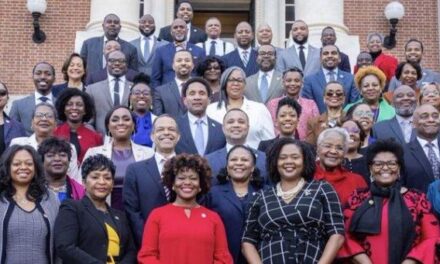By Kerry Mitchell Brown, Ph.D.
More than 12 million viewers watched the Louisiana State University (LSU) Lady Tigers, a team of majority Black women athletes, win their first-ever NCAA championship on April 2. Their rivals, and the forecasted winners, the Iowa Hawkeyes, a predominately White team, played hard. But LSU played harder. They dominated, the starters and women off the bench.
There were so many firsts in this game—a sold-out arena, trash talk during the game and record viewership. While these are common in men’s basketball, and men’s sports more broadly, these firsts crushed the conventional wisdom about women’s basketball. But, despite all these firsts, the all-too-familiar was also on display that day: anti-Blackness and White fragility.
In keeping with the long tradition of honoring these winners, the champions, the LSU Lady Tigers, are going to the White House. This team of mostly Black women athletes will tour the White House, shake hands with the president and continue the celebration of their victory. It’s truly an honor few athletes attain. However, this year, in an unprecedented move, this honor will also be extended to the losing team.
Wait, what? The losing team will be honored just like the winners? Why? The Hawkeyes played a great game, and they deserve recognition for their accomplishments this year—but this is the championship game, not recreational play. Playing a great game is a prerequisite for this level of play and an expectation, much like having one winning team and one losing team.
It has long been said that Black people, particularly Black women, have to be twice as smart, work twice as hard, and do twice as well to receive the same recognition or opportunities as others, particularly White women. This is true in all aspects of life, in all of our institutions and areas of life, and it is exhausting.
Why did the losing team of mostly White women athletes receive an invitation to the White House? If the Hawkeyes had won, as predicted, and LSU had lost, would LSU have received this honor?
While this invitation to the losing team was unprecedented, the reason for its extension to the Hawkeyes is all too familiar. This effort to minimize the win for Black women and salve the loss for White women is an everyday occurrence. In the workplace, this often takes the form of racial microaggressions – the brief and everyday slights, insults, indignities and denigrating messages directed at Black people and other people of color. They frequently come from well-intended people, like the First Lady, who consciously believe in and profess racial equality but unconsciously act in a racist manner.
Though people may be unaware of the hidden messages being communicated by, extending an unprecedented invitation to the losing team of mostly White players, the people at the receiving end of that microaggression are very aware of the harm done to them. This invitation minimizes the win by the mostly Black women of LSU.
While there is a growing awareness that this type of microaggression is just another form of racism, ongoing work is required. White women must continue the work of interrogating their collaboration with power and their complicity in the individualizing of Black women’s power and silencing of their voices. Change can only come when people are willing to look at themselves and the institutions around them and demand and do better.
The Iowa Hawkeyes worked hard this year, and they deserve accolades, as do all of our hardworking and skilled athletes. However, sending them to the White House as the losing team is a shameful play to White fragility that undermines the important achievement of the victors, the LSU Lady Tigers.
Kerry Mitchell Brown, Ph.D., is an equity strategist and cultural architect.
The post Op-ed: Twice as good still isn’t good enough appeared first on AFRO American Newspapers .











